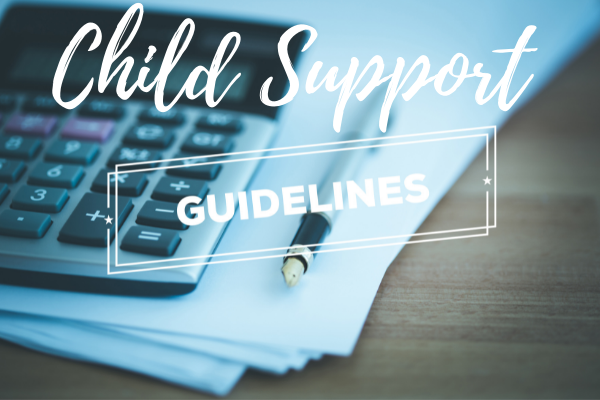Florida Child Support Guidelines
Florida follows the “Income Shares Model.” Both parents, whether married or not, are obligated to support their children financially. When determining the amount of child support, family law courts generally follow statutory child support guidelines.
Courts will estimate the amount parents would spend on children if the family were intact and living in one household. Then, they will divide this amount between the parents based on their incomes.
Parents must file and exchange financial affidavits verifying individual income and expenses and then complete a Child Support Guidelines Worksheet.
The amount of child support is based on guidelines defined in Florida law. Child support guidelines are standards used to figure out the support needed for a child and the amount a parent must pay. Guidelines help make sure support amounts are fair.
These guidelines are used the first time child support is ordered, and every time the child support amount changes. They are also used to review the order to see if the support amount should be changed.
Child support guidelines consider:
- The income of both parents
- The child’s health care and child care costs
- The standard needs for the child. A list of support amounts based on the child’s age and net income of the parents is in the Florida law—standard needs table.
The court or agency establishing support must use these guidelines to decide the amount of child support in a Florida support order.
In certain circumstances, support amounts can be higher or lower than the guideline amounts. For example, a judge may consider a child’s high medical expenses as a reason to change the support amount. In most cases, judges have to give reasons, in writing, why support amounts differ from guideline amounts.
Deviation from Florida Guidelines
If the facts merit it, the Court has the authority to deviate from the Guidelines.
Child support, in any case, must be reasonable and not force a parent to pay more than they can afford. The Court will consider all relevant factors when deciding whether to depart from the Guidelines. These criteria include, but are not limited to, the child’s needs, the style of living, each parent’s age, and each parent’s financial situation. A written explanation will be sought if the Court deviates from the Child Support Guidelines by more than 5%.
The amount of child support can be specified and agreed upon by both parents. However, the amount of assistance must be in the child’s best interests. A Florida family law court must approve child support agreements. The agreements will only be allowed if they ensure that the child is adequately cared for and maintained.
Amendment to Florida Family Law Rule of Procedure Form 12.902(e) Child Support Guidelines Worksheet
On January 13, 2022, the Supreme Court of Florida issued a Per Curiam opinion amending Florida Family Law Rule of Procedure Form 12.902(e) regarding the Child Support Guidelines Worksheet. The Form was amended to reference Florida Statute 61.30(6), explaining how to calculate child support if the obligor parent’s net income is less than the guidelines schedule or if the parties’ combined monthly net income is greater than the amount in the guidelines schedule.
You can access the Supreme Court of Florida’s opinion here.
Legal Help for Florida Child Support Issues
There are many issues that may arise when a couple is ending a marriage, especially when children are involved. To ensure the child(ren)’s needs are addressed and the parents are treated fairly with the settlement, it is wise to consult with experienced legal professionals in Orlando, Florida.







